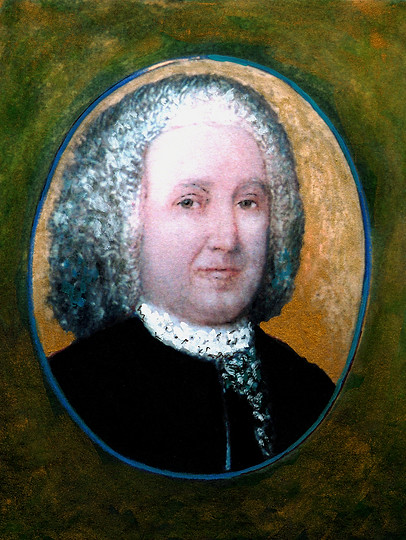Don Keenan
Painting a subject without their knowing it, a surprise portrait, is always fraught with danger… and in the case of Don Keenan, doubly so. A larger than life character, electrifying, the trial lawyer community with his “Reptile Theory” of practice, a TV personality, renowned children’s advocate, often to be found unshaved wearing shorts, T-shirt, and always those sunglasses. An ex-marine of Irish blood and creator of the Kids Foundation and Bono aficionado. All this and more went into this painting. It was with relief that I saw it was warmly and enthusiastically received at its unveiling in Houston. Kudos to the courage of the man brave enough to commission this painting!
Painting a subject without their knowing it, a surprise portrait, is always fraught with danger… and in the case of Don Keenan, doubly so. A larger than life character, electrifying, the trial lawyer community with his “Reptile Theory” of practice, a TV personality, renowned children’s advocate, often to be found unshaved wearing shorts, T-shirt, and always those sunglasses. An ex-marine of Irish blood and creator of the Kids Foundation and Bono aficionado. All this and more went into this painting. It was with relief that I saw it was warmly and enthusiastically received at its unveiling in Houston. Kudos to the courage of the man brave enough to commission this painting!
Don Keenan
Keenan, Don. 16" x 20". 2015. Collection of Keenan Law Firm. Atlanta, GA. Portrait on canvas. Commissioned by HMR Funding, Dean Chase.
Keenan, Don. 16" x 20". 2015. Collection of Keenan Law Firm. Atlanta, GA. Portrait on canvas. Commissioned by HMR Funding, Dean Chase.



Blackstone, William. 8" x 9". 1998 Collection of Howell Rosenberg. Philadelphia, PA.
William Blackstone was an 18th Century barrister, lecturer and law professor in London who ultimately gave up practicing law to lecture on the law. In 1756, those lectures were published as "An Analysis Of The Laws Of England,” a summary of the then-existing common law. The treatise became an immediate best seller. Blackstone was appointed to an endowed professorship at Oxford, but later ran for Parliament and was elected to the House of Commons.
Blackstone's second work, titled "A Discourse On The Study Of The Law," was begun in 1758. Blackstone is most noted for his "Commentaries” – a four-volume summary of the law. “Commentaries” addressed four different areas of the law–the rights of the individual, property rights, civil and social rights (torts) and criminal law. “Commentaries” was published five times while Blackstone was still alive and another edition published after his 1783 death.
Blackstone’s “Commentaries” became the backbone of early legal education in America—printed copies of the treatises were heavily relied upon in the 18th and 19th centuries.
Central to Blackstone’s writings was the concept of natural law, derived from God. Blackstone's commentaries influenced American Founding Fathers Alexander Hamilton, John Marshall, John Jay and John Adams; Blackstone’s idea that a natural law existed permeated the Declaration of Independence and the Constitution:
William Blackstone (1723 - 1780)
We hold these truths to be self-evident, that all men are created equal, that they are endowed by their Creator with certain unalienable Rights, that among these are Life, Liberty and the pursuit of Happiness. Alexander Hamilton quoted Blackstone in one of his early essays:This is what is called the law of nature, "which, being coeval with mankind, and dictated by God himself, is, of course, superior in obligation to any other. It is binding over all the globe, in all countries, and at all times.
No human laws are of any validity, if contrary to this; and such of them as are valid, derive all their authority, mediately, or immediately, from this original." One of Blackstone's most enduring contributions to judicial thought is a statement attributed to him: "It is better than ten guilty persons escape than that one innocent suffer." Blackstone, who later became a judge of common pleas, died in 1780.
